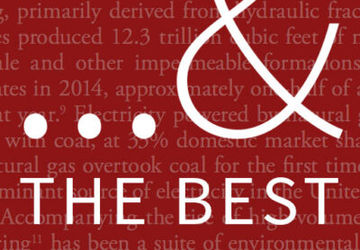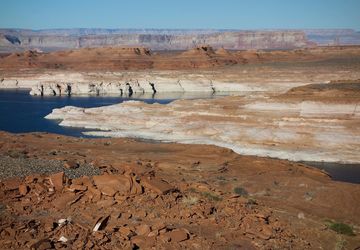By Andrew Ntim, Public Policy '18
On May 2, a group of Bay Area city managers met at Stanford to examine the dreaded "last-mile" problem in local and regional transportation. The term refers to the long distances often found between Bay Area transit hubs and the homes and workplaces residents need to get to. The event, which was co-sponsored by the Center, ended in a ground-breaking agreement among the university and the cities of Palo Alto, Mountain View, and Menlo Park to jointly address mobility challenges in the area. Below, a recap of the event by the Stanford sophomore Andrew Ntim, re-posted from the Stanford Public Policy program.
How do we solve the critical transit and transportation issues – bike lanes, parking spots, public transit – that the Bay Area faces today? That was the question of the day for the policy forum “Moving on Mobility: Last Mile Transportation Solutions” held on May 2, 2016 at Stanford. Organized by the Bill Lane Center for the American West, Stanford Public Policy, The Precourt Institute for Energy, and Joint Venture Silicon Valley, the event brought together city managers and transit specialists from around the Bay Area to advance the discussion of regional mobility issues.
Following introductory remarks from Stanford professor and Bill Lane Center for the American West Director Bruce Cain, along with Palo Alto city manager James Keene, the forum began with a discussion of “Last Mile” problems and solutions in the Bay Area from Stanford Precourt Institute for Energy Professor Stefan Heck. In his presentation, Heck discussed the various inefficiencies and dangers in various car-centric Bay Area downtowns, advocating for a more biker, transit and pedestrian heavy future. According to Heck, new technologies such as e-bikes, car sharing, and driverless vehicles will assist in making this future a reality.
The following speaker, Jamie Jarvis, Stanford Research Park’s Transportation Demand Manager, provided a deeper perspective on the transit issue, offering up employer-based solutions that Stanford Research Park has recently pursued. In the same vein, Jeff Tumlin of Nelson\Nygaard Consulting Associates discussed various solutions to Mountain View’s North Bayshore neighborhood– a so-called “Impossible First/Last Mile Problem,” due to its lack of services and transit.
Throughout the forum, Heck and other presenters used mobile polling technology to determine particular transit pain points and priorities for the attendees. Following a short Q&A session with each of the speakers, breakout sessions involving each of the audience’s highest polled priorities – including Caltrain, bike infrastructure, and parking/mobility – took place, generating a plethora of actionable items for quality and access improvement in all three areas.
From here, the forum transitioned to “Next Steps for Implementing Regional Transportation Solutions,” including, most critically, the signing of a formal “Managers’ Mobility Partnership” between the city managers of Menlo Park, Mountain View, Palo Alto and representatives from Stanford University. This partnership will provide a formal process by which to address transportation and mobility challenges in the region, with specific policy goals and procedures. More than just the discussion of problems, it represents the beginning of true solutions to the quagmire that is Bay Area transit.



